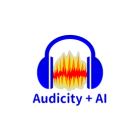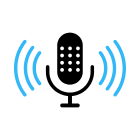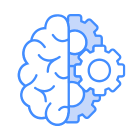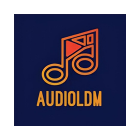AI+ Audio™
AP 7010
Experience the power of AI in Audio™ to reinvent music production, elevate sound design, and craft immersive auditory experiences.- Empower Audio Innovation with AI: Creative, Practical, Transformative
- Beginner-Friendly Learning: Perfect for newcomers eager to explore AI-powered audio, covering essential concepts with ease
- Comprehensive Skill Building: Includes speech processing, sound enhancement, voice synthesis, and real-world audio AI applications
- Industry-Ready Expertise: Understand how AI is reshaping music, media, entertainment, and communication sectors
- Hands-On Direction: Provides practical frameworks and guided exercises to help you create, analyse, and optimise audio using AI
Why This Certification Matters
At a Glance: Course + Exam Overview
- Instructor-Led: 1 day (live or virtual)
- Self-Paced: 8 hours of content

Who Should Enroll?
Aspiring Audio Engineers – Ideal for those looking to integrate AI into sound design, mixing, and mastering.
Music Producers and Composers – Perfect for creators who want to use AI tools for music generation and adaptive composition.
Machine Learning Enthusiasts – Great for learners eager to apply ML models to audio analysis and synthesis.
Game and Media Developers – Suitable for professionals aiming to create intelligent, immersive, and responsive sound environments.
Tech Innovators and Researchers – Designed for individuals exploring cutting-edge AI applications in audio technology and digital sound innovation.
Skills You’ll Gain
- AI-Driven Music Composition
- Audio Signal Processing
- Sound Classification and Tagging
- Speech and Voice Recognition
- Generative Audio Synthesis
- Neural Audio Enhancement
- Emotion-Based Sound Design
- Intelligent Mixing and Mastering
- Adaptive Soundscapes for Interactive Media
- Real-Time Audio Analysis and Optimization
What You'll Learn
- 1.1 What is AI?
- 1.2 AI in Daily Life: Audio Examples
- 1.3 Basics of Sound Waves, Amplitude, Frequency
- 1.4 Digital Audio Fundamentals
- 2.1 AI for Audio Enhancement and Restoration
- 2.2 AI for Audio Accessibility and Personalization
- 2.3 AI in Speech and Voice Technologies
- 2.4 Popular Audio Libraries: Librosa, PyAudio
- 2.5 Use Case:AI-Driven Real-Time Captioning and Translation for Live Events
- 2.6 Case Study:Personalized Hearing Aid Adaptation Using AI and Smart Earbuds
- 2.7 Hands-on: Voice Emotion Detection using Deepgram’s Voice AI Platform
- 3.1 Machine Learning Models for Audio Applications
- 3.2 Deep Learning & Advanced AI Techniques for Audio
- 3.3 Audio-Specific Architectures: CNNs, RNNs, Transformers
- 3.4 Transfer Learning in Audio AI
- 3.5 Use Case: Speech-to-Text Transcription for Medical Records
- 3.6 Case Study: AI-powered Music Generation with Deep Learning
- 3.7 Hands-on: Build a Speech-to-Text Model Using TensorFlow
- 4.1 Fundamentals of Speech Recognition & Phonetics
- 4.2 API-based ASR Solutions
- 4.3 Building Custom ASR Models with Transformers
- 4.4 Introduction to TTS & Voice Cloning
- 4.5 Use Case: Automating Meeting Transcriptions with Google Speech-to-Text API
- 4.6 Case Study: Custom Transformer-based ASR Model for Multilingual Customer Support
- 4.7 Hands-on: Transcribe audio with an ASR API; generate speech from text
- 5.1 Common Audio Issues
- 5.2 AI-based Noise Filtering & Enhancement
- 5.3 Use Cases: Enhancing Audio Quality for Remote Work Calls Using AI Noise Reduction
- 5.4 Case Study: Krisp’s AI-powered Noise Cancellation in Podcast Production
- 5.5 Hands-on: Use Krisp or Adobe Enhance Speech to clean noisy audio
- 6.1 Introduction to Emotion Detection
- 6.2 AI Models for Emotion Detection: RNNs, LSTMs, CNNs
- 6.3 Challenges: Bias, Multilingual Contexts, Reliability
- 6.4 Use Case: Enhancing Customer Service with Emotion Detection from Speech
- 6.5 Case Study: IBM Watson Tone Analyzer for Real-Time Emotion Recognition
- 6.6 Hands-on: Use IBM Watson Tone Analyzer or similar APIs to analyze speech samples
- 7.1 Deepfakes and Voice Cloning Risks
- 7.2 Privacy and Data Security
- 7.3 Bias and Fairness in Audio AI
- 7.4 Use Case: Implementing Ethical Voice Data Collection and Consent Management
- 7.5 Case Study: Addressing Bias and Privacy in Audio AI under GDPR Compliance
- 7.6 Hands-on: Detect fake audio clips; create an ethical AI checklist
- 8.1 Sound Event Detection & Classification
- 8.2 Audio Search and Indexing
- 8.3 Innovations: Multimodal AI, Edge Computing, 3D Audio
- 8.4 Emerging Careers in Audio AI
Tools You'll Explore

TensorFlow Audio Recognition

PyTorch Sound Classification

Librosa

OpenAI Jukebox

Google Magenta Studio

Audacity AI Plugins

Adobe Podcast AI Tools

AIVA

Wav2Vec

SpeechBrain

JUCE Framework

FL Studio with AI Integrations

Logic Pro Smart Tools

Sonible Smart EQ

Spotify Audio Analysis API

NVIDIA Riva Speech SDK

Deep Learning for Audio Toolkit

AudioLDM

Sound Design Automation Tools
Prerequisites
- Basic programming knowledge – Familiarity with Python or similar languages.
- Understanding of audio signal processing – Know fundamental audio manipulation techniques.
- Machine learning fundamentals – Basic knowledge of algorithms and model training.
- Mathematical proficiency – Comfort with linear algebra and probability concepts.
- Experience with audio software tools – Hands-on use of DAWs or similar tools.
Exam Details
Duration
90 minutes
Passing Score
70% (35/50)
Format
50 multiple-choice/multiple-response questions
Delivery Method
Online via proctored exam platform (flexible scheduling)
Exam Blueprint
- Introduction to AI and Sound – 7%
- Harnessing AI Across Audio Domains – 15%
- Machine Learning & AI for Audio – 15%
- Speech Recognition & Text-to-Speech – 15%
- Audio Enhancement & Noise Reduction – 12%
- Emotion & Sentiment Detection from Audio – 12%
- Ethical and Privacy Considerations – 12%
- Advanced Applications and Future Trends – 12%
Choose the Format That Fits Your Schedule
What’s Included (One-Year Subscription + All Updates):
- High-Quality Videos, E-book (PDF & Audio), and Podcasts
- AI Mentor for Personalized Guidance
- Quizzes, Assessments, and Course Resources
- Online Proctored Exam with One Free Retake
- Comprehensive Exam Study Guide
Instructor-Led (Live Virtual/Classroom)
- 1 day of intensive training with live demos
- Real-time Q&A, peer collaboration, and hands-on labs
- Led by AI Certified Trainers and delivered through Authorized Training Partners
Self-Paced Online
- ~8 hours of on-demand video lessons, e-book, podcasts, and interactive labs
- Learn anywhere, anytime, with modular quizzes to track progress
Discover Your Ideal Role-Based Certifications and Programs!
Not sure which certifications to go for? Take our quick assessment to discover the perfect role-based certifications and programs tailored just for you.
Get CertifiedFrequently Asked Questions
Yes, you’ll gain hands-on experience with AI tools for music creation, sound design, and speech recognition that can be immediately applied across industries like music production, entertainment, and media technology.
This course uniquely blends AI with audio engineering, focusing on generative music, intelligent sound processing, and adaptive audio systems that redefine how sound is created, customized, and experienced.
You’ll work on projects like AI-generated music composition, real-time sound enhancement, intelligent voice synthesis, and a capstone project focused on building an AI-powered audio application or tool.
The course combines foundational theory with interactive labs, practical assignments, and real-world projects that help you apply AI in sound processing, production, and intelligent audio design.
You’ll develop specialized AI and audio technology skills that prepare you for roles such as AI Audio Engineer, Sound Designer, Audio Data Scientist, or Speech Processing Specialist in music, gaming, and media industries.


